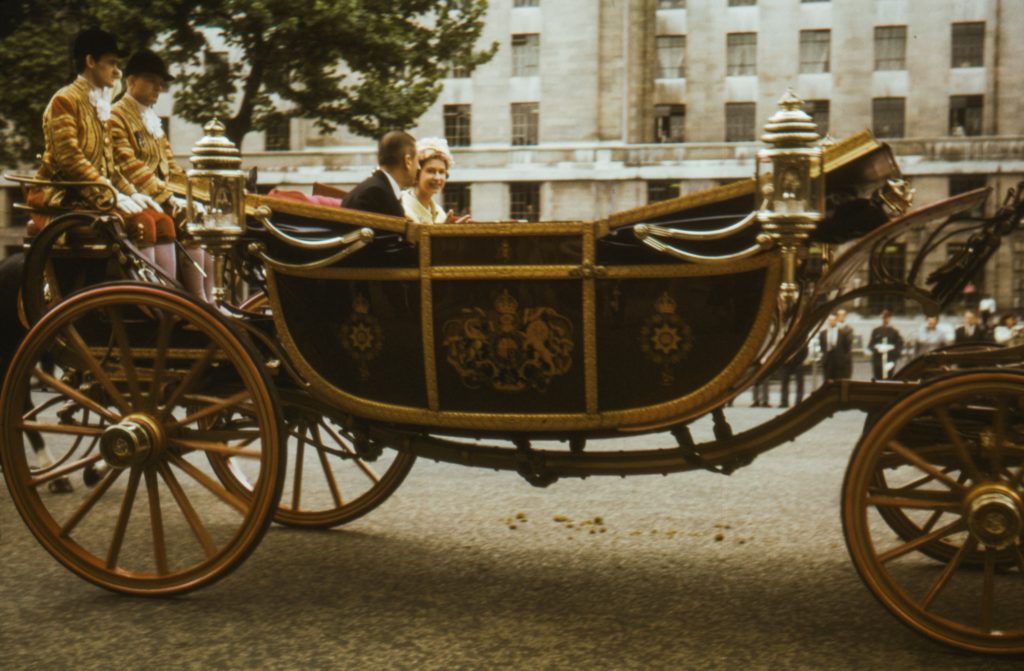
Published September 8, 2022
The death of Queen Elizabeth II marks a watershed for Britain and for those of us who have never known any other head of our state—as is true for any lifelong British citizen under the age of seventy. Remarkably, she began her reign while Winston Churchill was prime minister and then lived to see a further fourteen individuals hold that high office. Without question she saw more change in British society than any of her predecessors, and throughout it all she remained a calm and steadfast figurehead for the nation.
Growing up, I never had much time for the monarchy. With the exception of the Silver Jubilee in 1977, marked as it was by street parties and celebration, the monarchy rarely touched my life in any real way. Furthermore, as a lower-middle-class schoolboy, I possessed all the usual insecurities: a fear of the working class and a resentment of the nobility. But over the years my respect for the queen grew. In a world that was increasingly embracing casual disrespect, exhibiting a perverse pleasure in repudiating any notion of duty, and accepting uncouth behavior among its ruling classes, she stood out as reflecting a better, more civilized philosophy of public life.
Indeed, she lived long enough to become an anachronism, though not in the sense that republicans typically mean when they argue that monarchy is merely the unnecessary and backward residue of an earlier feudal age. She became an anachronism because of the kind of person she was. She was emotionally reserved in public, placed her duty to the nation above her own interests, and rose above the day-to-day currents of politics. Her reserve may at times have seemed like a cold aloofness, as in the days after the death of Diana, princess of Wales, in 1997. But in reality it merely indicated that she did not view the institution of the monarchy as a platform on which to perform in the faux intimate ways that mark public celebrities (including some members of her own family). Instead, she saw the monarchy as something larger than herself, something to which her personal interests had to be subordinated.
Some of this was no doubt due to her quiet but serious Christian faith. A friend who once had the privilege of being a royal chaplain and spending a weekend at Balmoral Castle confirmed that the conversations he had with the queen revealed her to be a thoughtful, devout Christian. As a humble Christian she took her earthly vocation seriously, placing the needs of the office and of the people she ruled before her own.
Unlike most heads of state today, she was a person to whom one could point and say to one’s children and grandchildren, “When you grow up, you want to be like her.” Her reign was marked with a deep sense of the dignity of her office. She never used profane language. She never sneered at critics. A generation raised on reality TV, life-as-performance, confected Twitter outrage, and “living loud” would do well to reflect upon that. To how many other executives of the past decades can one point as a good example to follow? Maybe that is why monarchy might not be such a bad thing after all. Democratically-elected leaders often achieve their positions thanks to ruthless ambition, dirty tricks, and an overwhelming sense of their own vital importance. The queen was never burdened with such temptations, and it showed.
We British are diminished by her passing. And the world is surely diminished, too, having lost one of its precious few heads of state worthy of respect. May she rest in peace. We shall not see her like again in my lifetime, I fear.
Carl R. Trueman is a fellow in EPPC’s Evangelicals in Civic Life Program, where his work focuses on helping civic leaders and policy makers better understand the deep roots of our current cultural malaise. In addition to his scholarship on the intellectual foundations of expressive individualism and the sexual revolution, Trueman is also interested in the origins, rise, and current use of critical theory by progressives. He serves as a professor at Grove City College.
Photo by Annie Spratt on Unsplash
Carl R. Trueman is a fellow in EPPC’s Evangelicals in Civic Life Program, where his work focuses on helping civic leaders and policy makers better understand the deep roots of our current cultural malaise. In addition to his scholarship on the intellectual foundations of expressive individualism and the sexual revolution, Trueman is also interested in the origins, rise, and current use of critical theory by progressives. He serves as a professor at Grove City College.










